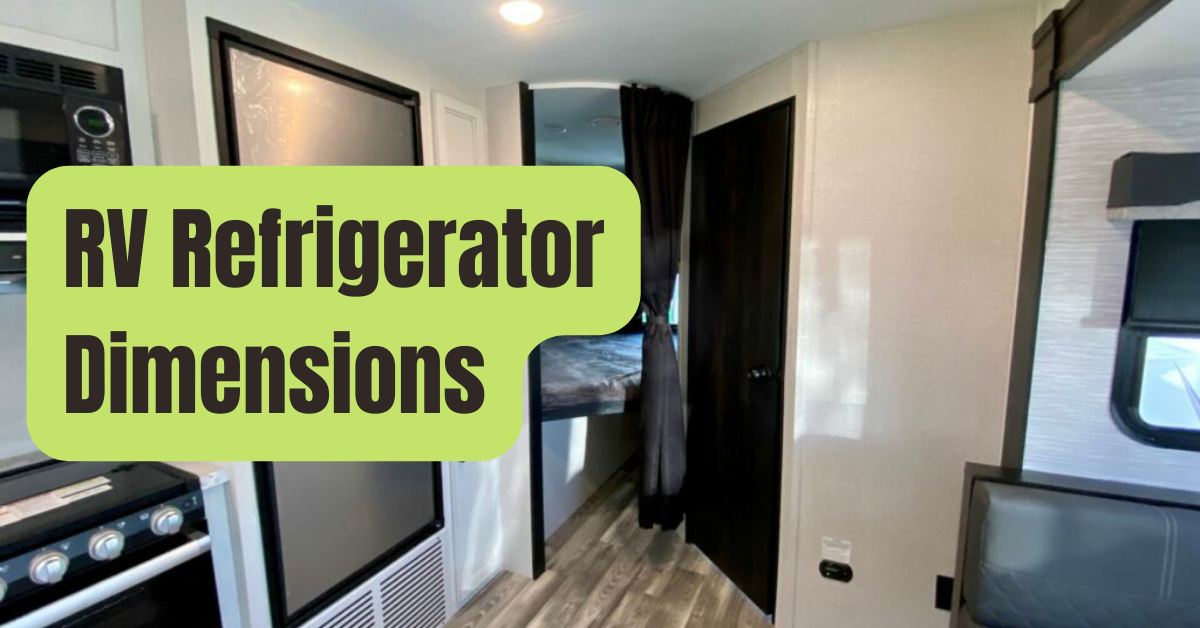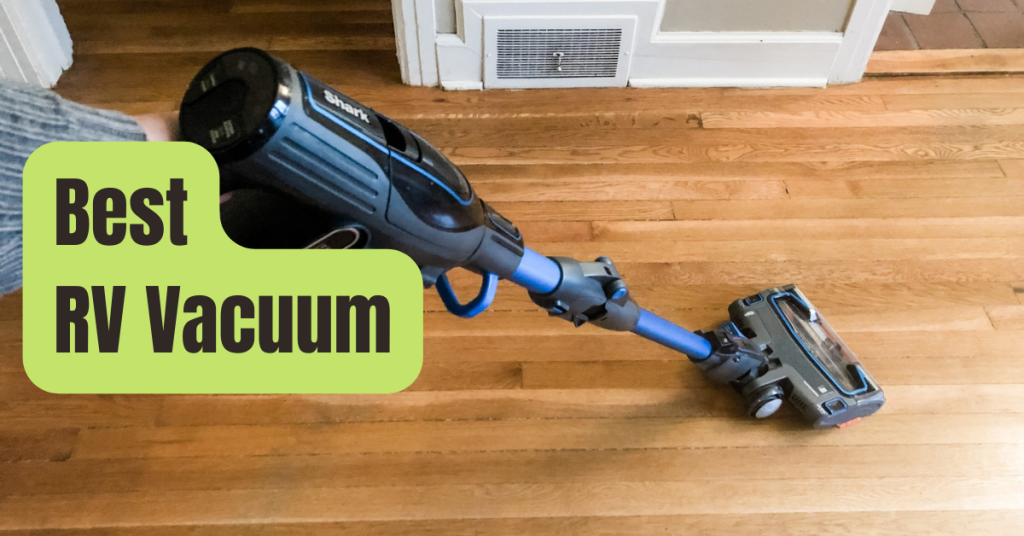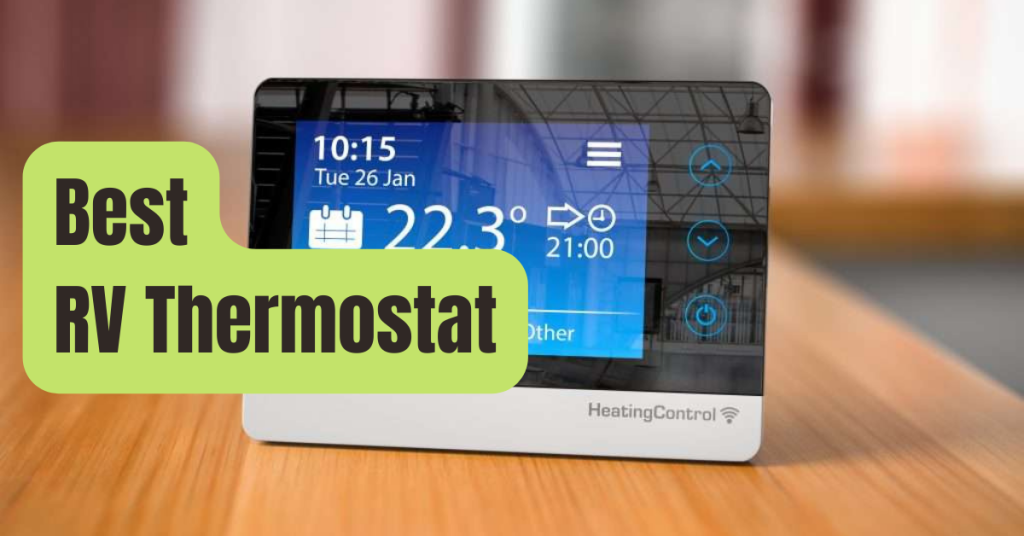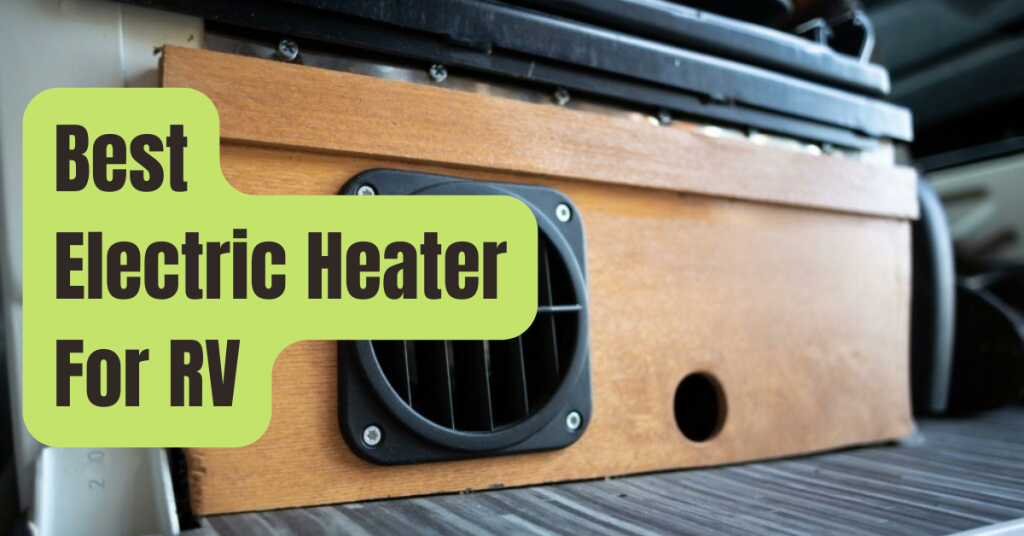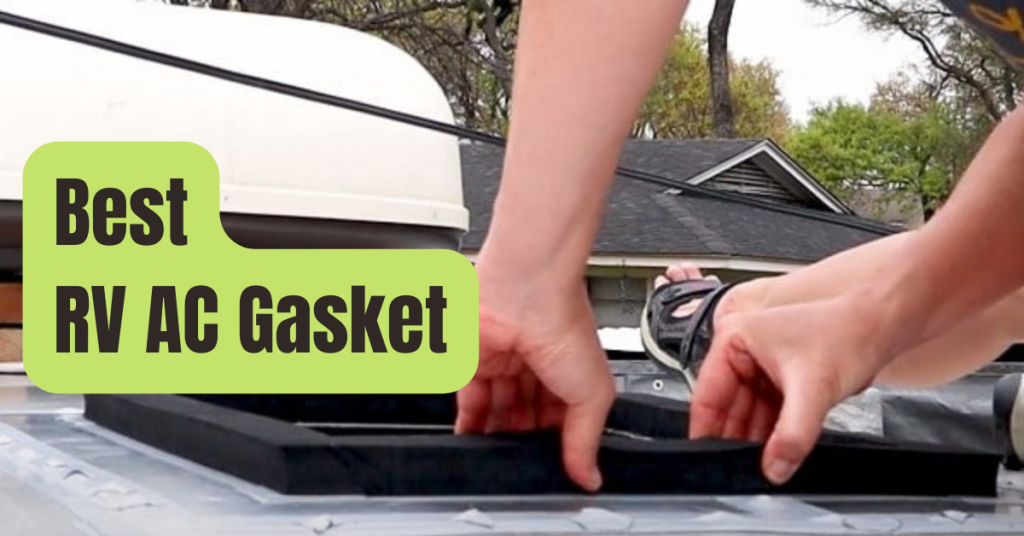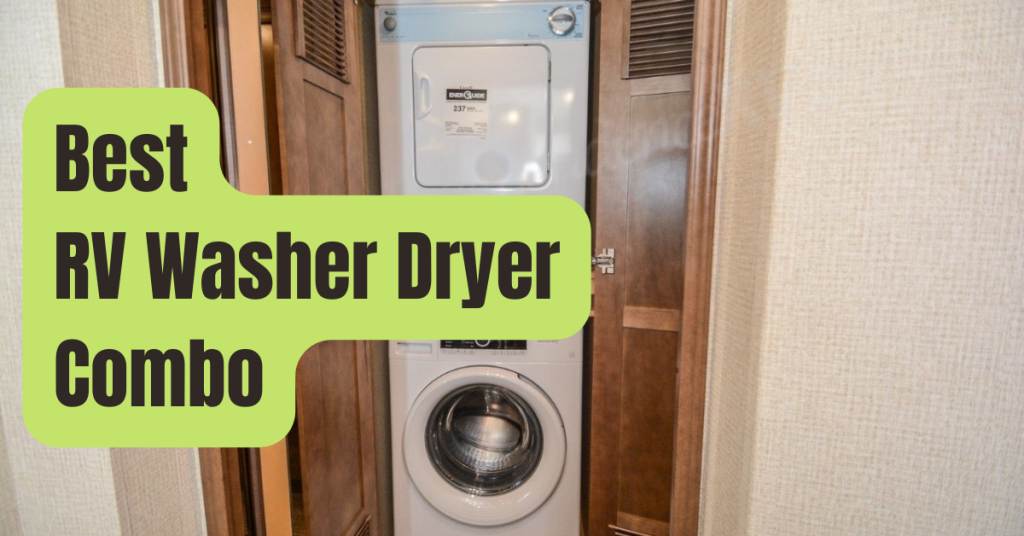An RV’s ability to provide access to essential home amenities while on camping trips is one of its finest features.
The refrigerator is one of them that is most handy in an RV.
We all need a means to keep our food cold, and although an ice chest may do this, maintaining one is a great deal of work and detracts from the enjoyment of camping.
Of course, no equipment lasts forever, so eventually your RV refrigerator will need to be fixed or replaced.
This makes it a good idea to educate yourself as much as possible about your camper fridge.
When the time comes to repair or replace the appliance in your RV, being knowledgeable about the many types, their peculiarities, and how to maintain them can be helpful.
How Does a Refrigerator in an RV Operate?
Not many people would anticipate the answer to this question.
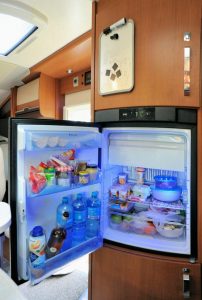
As you can see, these RV-specific units operate differently from residential units.
To keep things cold, a typical domestic refrigerator employs a compressor.
An RV refrigerator, on the other hand, employs ammonia, hydrogen gas, and water to sustain the frigid temperatures required to keep food fresh while having no moving components.
An absorption refrigerator is the name for this kind of appliance.
A basic explanation of how an absorption fridge works is that it uses heat to move the aforementioned fluids through different tubes, causing chemical reactions.
These reactions keep things cool by causing evaporation and condensation.
The heat required to operate the camper refrigerator is produced by a heating element when a camper is linked to shore power or a generator.
Otherwise, a propane-fueled open flame keeps the refrigerator operating.
Types of RV Refrigerator
Two-way refrigerators or three-way refrigerators are the most common varieties seen in RVs:
- A 2-way RV refrigerator provides the user the choice of utilizing LP gas or AC electricity (from the shore or a generator).
- A 3-way RV refrigerator, however, may run on either the aforementioned power sources or DC power from the house batteries.
RVs are now increasingly being equipped with electric-only residential-type fridges in addition to two-way and three-way refrigerators.
These freezers may sometimes be placed in factories.
Sometimes users install them themselves.
It’s critical that users be aware that domestic refrigerator compressors and other internal parts might get worn down over time in both situations.
Despite this, these refrigerators often cost significantly less than their equivalents designed specifically for RVs and tend to have superior cooling and greater storage space.
The ultra-modern and adaptable hybrid camper fridge is the last option.
These appliances are precisely what you may expect them to be: a cross between a compressor- and absorption-cooled refrigerator that offers the consumer the best of both worlds.
What Size Refrigerator Fits an RV?
It’s crucial to consider size if you want to replace your RV fridge.
A normal RV refrigerator will only be between 4 and 12 cubic feet, but the majority of domestic refrigerators range in size from 18 to 21 cubic feet.
You’ll also need to know how large the outside of your new unit may be in addition to the cubic foot dimension (which is the size of the inside of your refrigerator).
This necessitates meticulously measuring the available area for the appliance.
To ensure your measurement is correct and you’ll get the greatest fit possible, we advise measuring many times.
How Durable are RV Refrigerators?
Between 15 and 20 years is the typical lifespan of an RV refrigerator.
Of course, a few factors will affect how long your refrigerator lasts.
First off, you may anticipate using an RV fridge for fewer years if you buy it secondhand.
A restored RV refrigerator may survive longer than one that has been pulled out of another camper, but it still won’t be as durable as a new one.
You should make your decision depending on how long you need the unit to endure and how much money you have available.
How effectively you take care of the refrigerator is another aspect.
The upkeep of an RV refrigerator is not too difficult.
However, disregarding basic maintenance guidelines may cause your equipment to die before its time.
An RV Refrigerator Uses How Much Propane?
Many folks are curious about how much LP gas an RV refrigerator will use, particularly those who intend to do a lot of dry camping.
Obviously, the answer to this depends on the specific refrigerator in issue as well as the ambient temperature at the time the fridge is being used.
However, while using an RV refrigerator, one may normally anticipate using an average of 1.5 lbs of propane every day.
Which RV Refrigerator Is The Best?
You may be wondering which RV fridge is the best if you’re in the market for a new one.
In all honesty, there isn’t a simple solution to this problem.
The answer differs for various individuals since the greatest RV refrigerator is the one that best meets your requirements.
You may get an RV fridge from one of two primary manufacturers: Norcold or Dometic.
Both are comparable, and you can get a high-quality fridge from either supplier, according to the majority of RV forums.
You’ll be in excellent hands if you buy a Dometic RV refrigerator that’s on sale or choose the Norcold RV refrigerator.
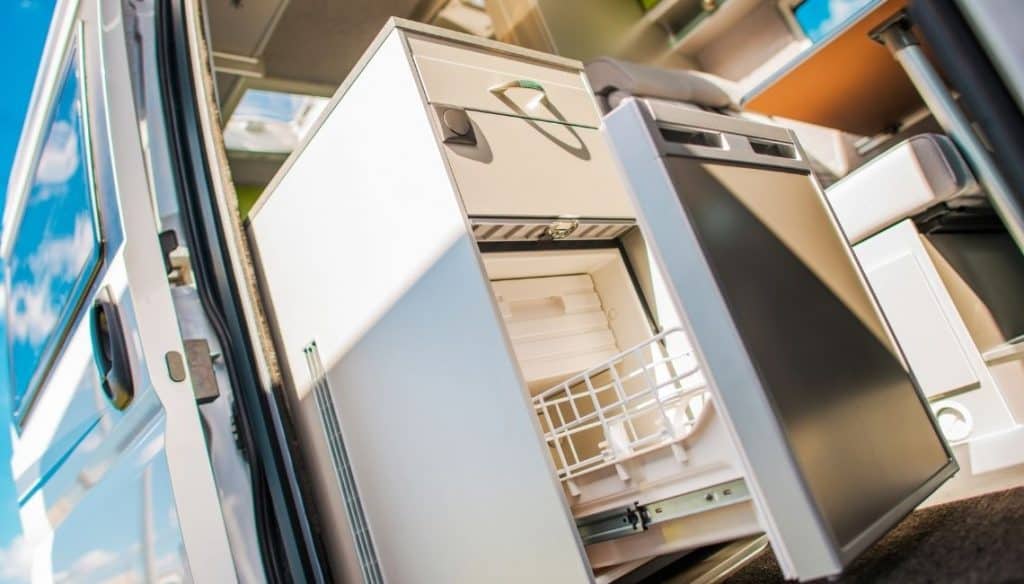
#1. Things To Think About While Purchasing Include…
- Whether you’ll require a propane or DC power function when dry camping
- How much room you need in your refrigerator A big family that enjoys cooking for itself would have quite different demands than a small group of people who like dining out often.
- The size of the area where the fridge must fit (as we previously specified) — To choose the appropriate size, carefully measure the area where you want your refrigerator to go.
Having said that, there are a few distinct RV refrigerator types you should look at.
#2. Top-Rated Dometic RV Refrigerators
Here are several Dometic RV refrigerators that have received positive evaluations if you’re shopping for one.
- Reviewers like the small design of the Dometic NewGen Refrigerator Series refrigerators, which nonetheless provide enough of refrigerator capacity. They also include self-locking handles and adjustable shelves.
- A tiny, compact 3-way refrigerator with a dependable, silent chilling system, a robust frame, and movable shelves, the Dometic RM2193 receives great honors.
- Dual hinges, an automated energy source choice, and a flexible interior are further features that have Dometic RM/ RMD 2-way Double Door RV Refrigerators at the top of rankings.
- The Dometic CFX-28US Portable RV fridge has been referred to as “the Michael Jordan of RV refrigeration” by one reviewer. From 26 to 94.5 liter capacity, the CFX series is available in six distinct sizes and at varied pricing ranges.
Where to Buy Refrigerators for RVs
Of course, you may speak with your RV dealer and get a refrigerator in this manner.
Additionally, you may buy them from the manufacturer directly via their website.
Even Amazon and other internet merchants like Camping World sell several RV refrigerators.
Finally, you may search online for a used RV refrigerator or seek guidance in forums for RVs.
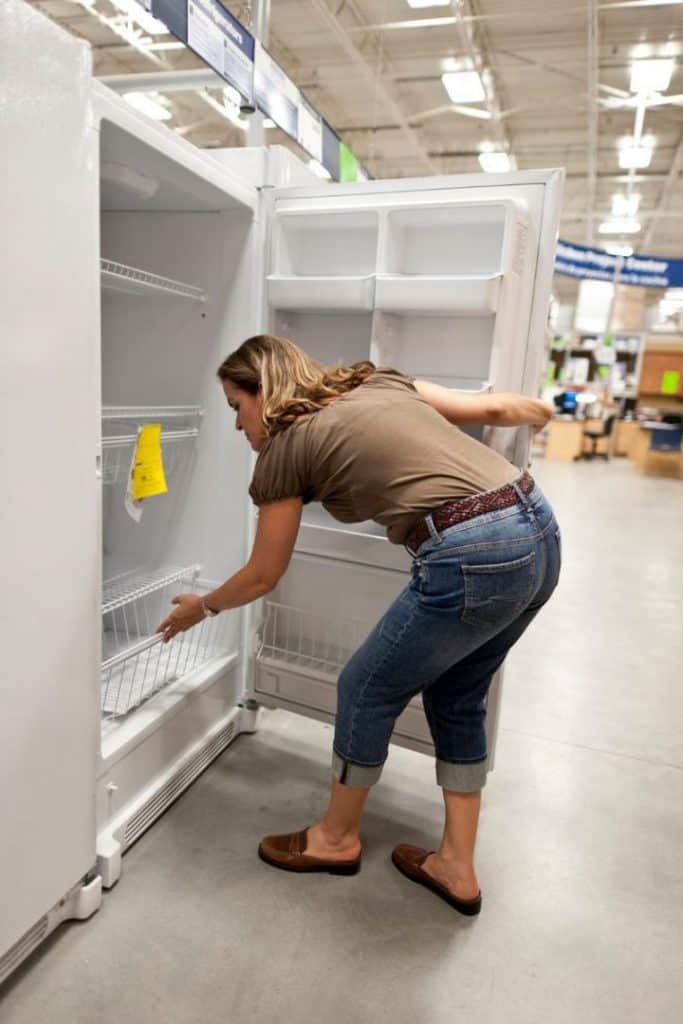
#1. Used Refrigerators for RVs
There are several locations where you may buy secondhand RV refrigerators.
Online garage sale websites like Craigslist are a simple way to start.
Look at what is currently available in your region to get a sense of what costs are typical and what prices are reasonable.
If you’re fortunate, an RV dealership is located in or close to where you reside.
Both new and used RV appliances and components are a common focus of many retailers.
You can start to understand how much these firms are paying for used appliances themselves if you assume that the majority of them will add anything to the amount that they acquire a used appliance for.
Purchasing secondhand from a dealership could be the best option if you think it would be worthwhile for you to purchase anything that has been examined or reconditioned.
Of course, like any online store when you make a direct purchase from a seller, you’ll need to either rely on their evaluation of the equipment or be able to independently verify its operation.
#2. Advice on Purchasing Used
To ensure the refrigerator works when purchasing secondhand, look for a few essential components.
First, determine the refrigerator’s age.
These appliances probably aren’t running around the clock like your refrigerator at home.
Then, it’s a good idea to inquire about how often the refrigerator was used or how frequently and how long the owners went by RV.
Ask to view the refrigerator while it is on.
To determine the temperature inside, use a thermometer.
The refrigerator should comfortably operate between 34 and 36 degrees.
Anything higher will cause the food to deteriorate.
Freezers should be able to operate comfortably in the 0 to 10 degree range.
If the refrigerator cannot keep or attain these temperatures, you may infer there is an issue that has to be fixed.
While it may just need a quick repair, you may also want to hunt for an alternative appliance.
Additionally, ensure sure the refrigerator doors are well shut.
When the refrigerator is switched on, does air leak out? Find out whether the owner is the original owner and if there are any known issues with the property.
And if you notice a bad odor, change your mind.
Sometimes it’s hard to eliminate a refrigerator odor.
Tips for Using and Maintaining RV Refrigerators
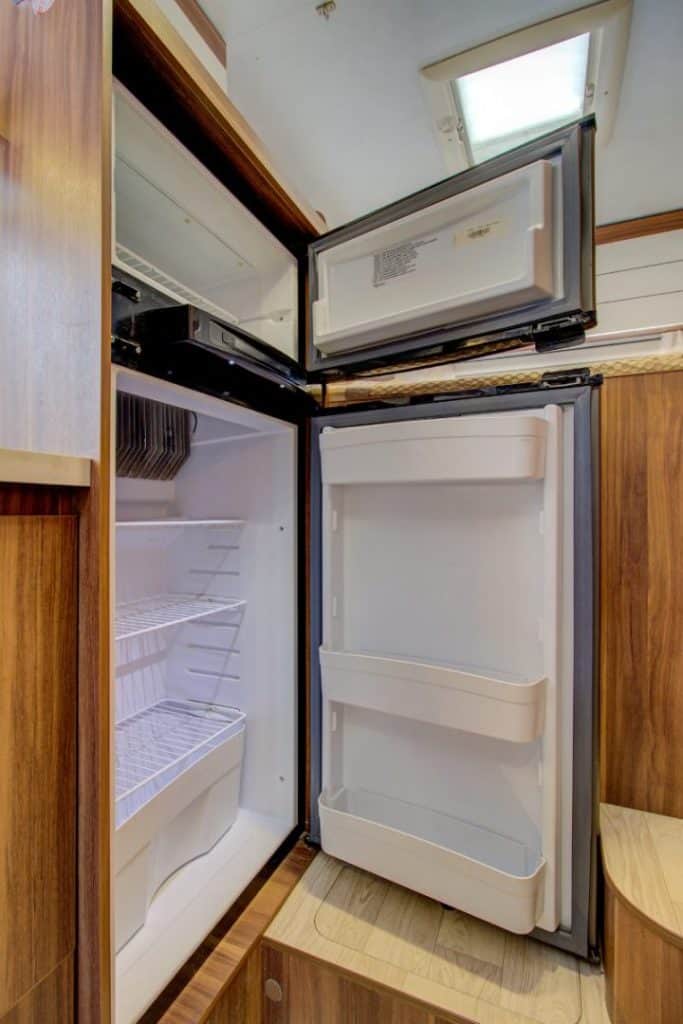
- Turn it on early – your fridge will require at least 6 hours to cool completely. The night before you want to use it, turn it on.
- Begin with cold products – Filling the RV refrigerator with cold foods will allow it to chill quicker.
- Don’t overcrowd it – It’s critical to allow enough space between objects for cold air to circulate. You must thus be careful not to overpack your camper fridge.
- Install a fan – To keep your camper cool if you intend to camp in really hot weather, you could buy and install a small refrigerator fan.
- Keep it closed – Opening the fridge and freezer doors often can make the appliance work harder to maintain its cooling, so it is best to keep them closed as much as possible.
- Examine the seals – Loose or unclean seals might allow cool air to escape. Regularly inspect your seals, clean them, and replace them if necessary.
- Allow time to defrost – Refrigerators and freezers in trailers and motorhomes are not frost-free. If you want to use yours for a lengthy period of time, be sure you periodically thaw them out.
- Stay level – RV freezers may be harmed if they are not leveled, so make sure you’re constantly level while parked. When moving, leveling is less crucial since movement prevents liquid ammonia from settling in one spot. Since there are no mechanical pumps or compressors in the absorption design to circulate the refrigerant in the system, appropriate leveling is required to keep the refrigerant moving.
- Check for blockages – In order to adequately chill, your refrigerator need enough air. Check the front and rear vents often for blockages (such leaves, dirt, and debris) and take out anything you discover.
- Change the parameters – Depending on the weather, you may need to alter the settings. For instance, a colder setting can be appropriate in hotter conditions. Meanwhile, milder temperatures won’t put as much strain on the fridge, so a lower setting should be enough.
- Prepare for storage – Long-term storage may sometimes lead to problems with your RV refrigerator’s performance. Whenever you store your coach, make sure the refrigerator is totally off. Disconnect and close the propane tank valves. To avoid moisture getting trapped, it’s a good idea to prop open your refrigerator doors and remove any food or ice. Nobody wants to begin their next road trip cleaning or repairing a smelly fridge!
The RV Refrigerator Should Have Regular Maintenance To Maintain It In Working Order.
It’s an easy procedure:
- Turn off the refrigerator.
- Remove the lowest vent on the outside that provides access to the rear.
- Look over the connections.
- Find the burner now; the flue is just above. Inside the flue is the baffle. Blow air into the flue using an air compressor.
- Continue using the air compressor to clear the area surrounding the compartment of dust and debris that has accumulated.
Procedures for Troubleshooting
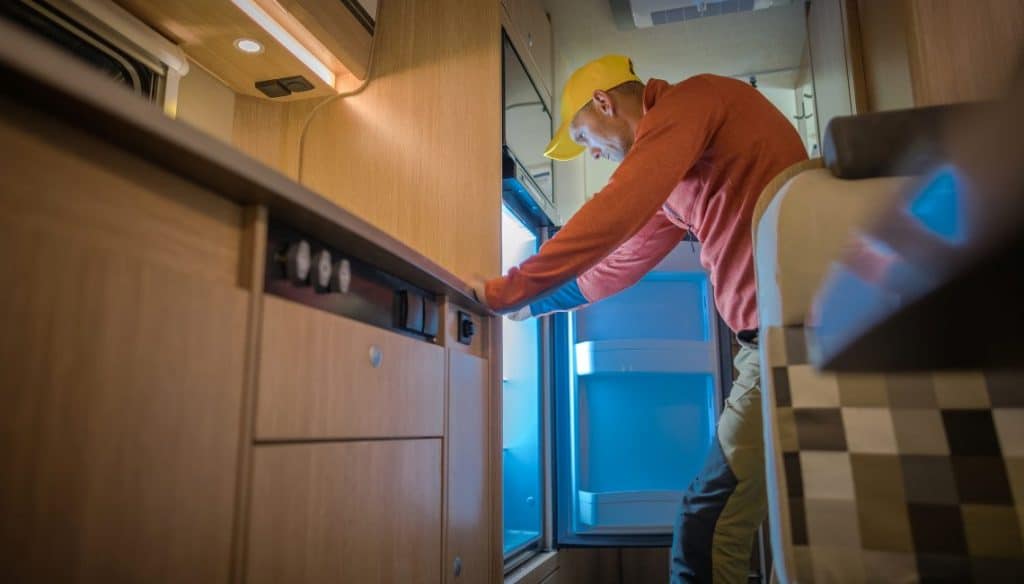
Pilot Light Issue: It Won’t Stay Lit
Check the pilot light on your propane-powered RV refrigerator to make sure it’s working.
Examine the flame.
Is it decent? Does it immediately leave?
The indicator often fails to remain illuminated, which may indicate that your gas supply is poor.
The thermocouple regulates the flow of propane to the refrigerator.
Prior doing anything else, be careful to clean the burner tube, flue, and orifice within the flame region.
There is a fridge access on the exterior of the bus.
Take off the tin lid and that as well.
You can see dirt and debris that has to be removed or a buildup of rust.
Residue often confuses the sensor, which extinguishes the flame.
Let’s try it now.
So, a thermocouple issue may be the cause of this.
The primary gas valve is where the thermocouple is fastened.
It may need to be changed.
Issue: It Uses Propane But Not 110 Volts
Verify all of the fuses and circuit breakers.
Verify the outlet behind the refrigerator.
Check the voltage of the power source using a multimeter.
Check the electric heating element if the voltage seems to be stable and all of the lights are operational.
Attention: this has harmful voltage.
Issue: The Warning Lights Are On.
This might be brought on by low voltage.
The batteries in the coach may be low or dead.
To operate on propane, the refrigerator needs 12 volts of electricity, or 120 volts of power.
The batteries in the bus must be completely charged.
Additionally, attempt to reset the check-on lights.
To do this, turn off the power, count to 10, then switch it back on.
Problem: No Source Of Cooling Fuel
There are various procedures involved in diagnosing an RV.
First, keep in mind that the majority of the parts beneath a refrigerator are HOT.
When possible, wear gloves and use caution.
Verify that the heat is distributed evenly throughout the boiler, absorber, and center section of the cooling unit by feeling it.
In the event that it isn’t, there can be a blockage, and one location will be much hotter than the others.
The cooling liquid is not flowing through the whole device if there is an obstruction.
However, you may want to relocate your RV before hiring a contractor or shelling out a ton of cash on prospective repairs.
Unbelievable as it may seem, the way you are parked may be the reason of your RV fridge not chilling.
Your RV has to be level in order for the refrigerator to operate correctly.
The problem that keeps your RV refrigerator from cooling down is probably not the same one that keeps your refrigerator at home from cooling down.
In an RV refrigerator, the heat is pulled out and absorbed by a chemical solution rather from being converted into cool air as it would in a compressor refrigerator.
If the refrigerator isn’t level, the chemical coolant can’t go through the coils and can’t perform its function, leading to issues with RV refrigerators.
This method relies on gravity to pass through the coils.
Most modern RV refrigerators will generally continue to operate even if they aren’t level, but only for a limited time.
The RV refrigerator cooling unit might become severely damaged if a fridge has not been level for more than 30 minutes.
Unfortunately, if the refrigerator hasn’t been level for a while, you’ll probably face ongoing issues and have to either repair the cooling system or buy a new appliance.
Issue: Leaking Air Conditioning Unit
Let’s assume that the absorber is extremely hot and the boiler is just moderately heated.
This indicates that a leak is present.
The gas is leaking, but the device is still operating.
If you smell ammonia, the issue is confirmed.
Additionally, check the refrigerator’s rear for any yellow buildup.
You have a leak because sodium chromate is to fault.
This most likely calls for a service technician, which may result in a repair fee or the need for a new RV refrigerator.
To replace the cooling rather than the complete fridge, more and more RV owners are opting.
It depends on the person and what they are most at ease with.
Replacing the Refrigerator in Your RV
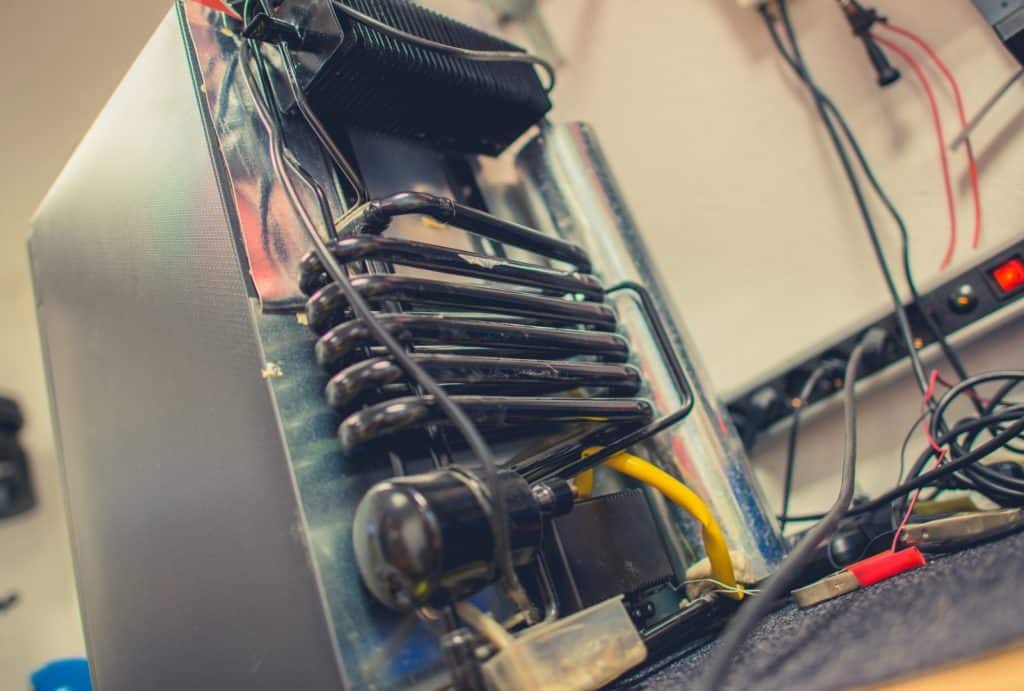
Residential refrigerators are increasingly being used inside trailers, fifth wheels, and motorhomes by RV owners.
Installing a conventional fridge has various benefits, such as additional inside room, contemporary amenities, and more exact temperature and cooling.
It is feasible to swap out your RV refrigerator with a regular fridge, but it could be challenging to fit it in the available space.
Additionally, you’ll want steady 120 volt power, which means that if you’re dry camping, your generator must be running.
Always be sure to measure the area where your present fridge is before installing a new refrigerator, whether it’s an RV or a home unit.
Additionally, you should measure the size of your RV entrance to ensure that the new unit will pass through the doorway.
Make sure these dimensions are accurate by taking them again.
It may be quite frustrating to spend money on a brand-new fridge for your rig only to discover that it won’t fit.
Start by shutting off the propane, electric controls, and batteries before removing an RV refrigerator.
Next, switch off your generator and home batteries after unplugging the main electricity.
To reach the rear of your refrigerator, find the access panel on the exterior of your RV.
To cut the supply line and 12V wires, use a wrench.
After that, you’ll need to go back inside to remove any caulk keeping the refrigerator in place and unscrew it.
After completing these procedures, you may proceed to carefully remove the refrigerator.
Simply reverse the preceding procedures to install your new unit.
A refrigerator can often be replaced in just an hour, as opposed to days for an old unit to be rebuilt.
Whatever you choose, be sure to deal with a qualified fridge repair professional for RVs.
The Conclusion
There is a fridge out there for everyone, whether they need a tiny one for irregular weekend road trips or a bigger one to store food while living in an RV.
The next time your refrigerator chooses to malfunction or you need to upgrade, you’ll be able to handle it with ease thanks to our tutorial, we hope.
Do you need additional details about the appliances in your RV? You may get all the RV information you need by browsing our blog.
Gratitude for reading! Please share your thoughts in the section below.

